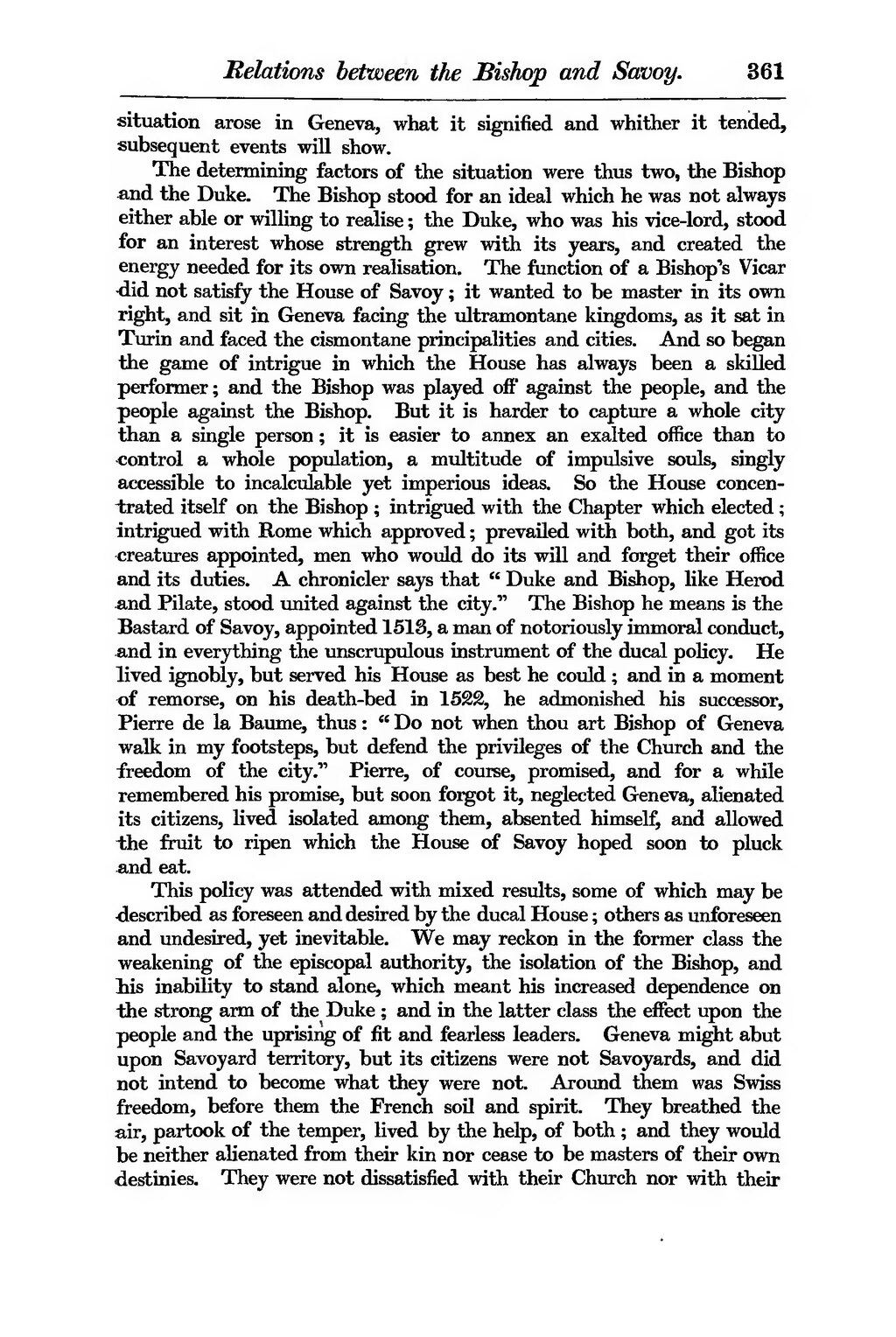situation arose in Geneva, what it signified and whither it tended, subsequent events will show.
The determining factors of the situation were thus two, the Bishop and the Duke. The Bishop stood for an ideal which he was not always either able or willing to realise; the Duke, who was his vice-lord, stood for an interest whose strength grew with its years, and created the energy needed for its own realisation. The function of a Bishop's Vicar did not satisfy the House of Savoy; it wanted to be master in its own right, and sit in Geneva facing the ultramontane kingdoms, as it sat in Turin and faced the cismontane principalities and cities. And so began the game of intrigue in which the House has always been a skilled performer; and the Bishop was played off against the people, and the people against the Bishop. But it is harder to capture a whole city than a single person; it is easier to annex an exalted office than to control a whole population, a multitude of impulsive souls, singly accessible to incalculable yet imperious ideas. So the House concentrated itself on the Bishop; intrigued with the Chapter which elected; intrigued with Rome which approved; prevailed with both, and got its creatures appointed, men who would do its will and forget their office and its duties. A chronicler says that " Duke and Bishop, like Herod and Pilate, stood united against the city." The Bishop he means is the Bastard of Savoy, appointed 1513, a man of notoriously immoral conduct, and in everything the unscrupulous instrument of the ducal policy. He lived ignobly, but served his House as best he could; and in a moment of remorse, on his death-bed in 1522, he admonished his successor, Pierre de la Baume, thus: "Do not when thou art Bishop of Geneva walk in my footsteps, but defend the privileges of the Church and the freedom of the city." Pierre, of course, promised, and for a while remembered his promise, but soon forgot it, neglected Geneva, alienated its citizens, lived isolated among them, absented himself, and allowed the fruit to ripen which the House of Savoy hoped soon to pluck and eat.
This policy was attended with mixed results, some of which may be described as foreseen and desired by the ducal House; others as unforeseen and undesired, yet inevitable. We may reckon in the former class the weakening of the episcopal authority, the isolation of the Bishop, and his inability to stand alone, which meant his increased dependence on the strong arm of the Duke; and in the latter class the effect upon the people and the uprising of fit and fearless leaders. Geneva might abut upon Savoyard territory, but its citizens Were not Savoyards, and did not intend to become what they were not. Around them was Swiss freedom, before them the French soil and spirit. They breathed the air, partook of the temper, lived by the help, of both; and they would be neither alienated from their kin nor cease to be masters of their own destinies. They were not dissatisfied with their Church nor with their
